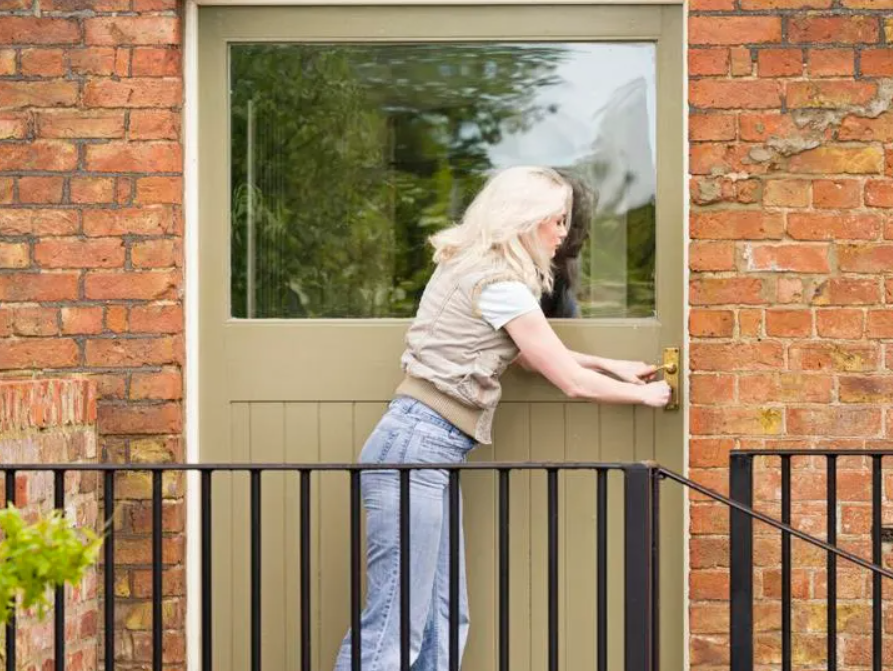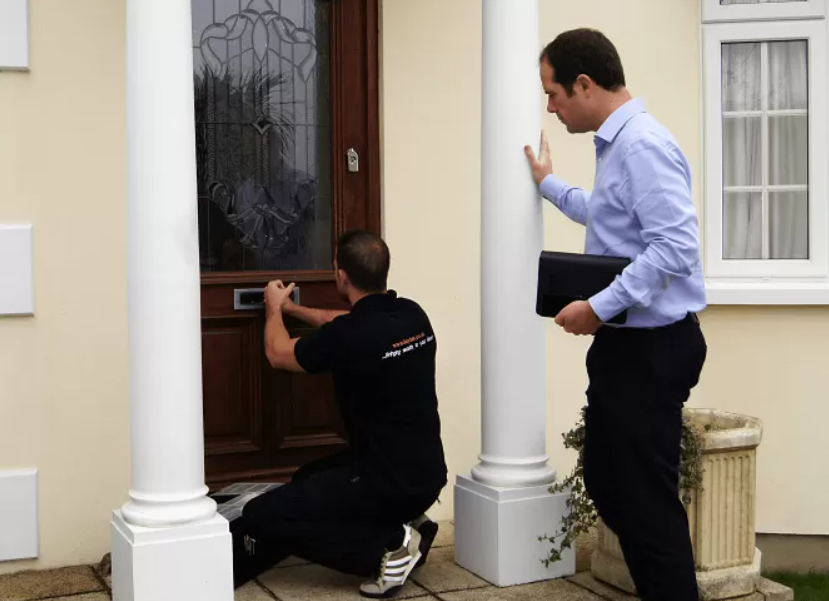Experiencing a home lockout is a common and stressful situation that can disrupt your day. Whether you misplaced your keys or accidentally left them inside, knowing how to handle a lockout efficiently can make a significant difference. This comprehensive guide will outline four essential steps to follow during a home lockout, providing practical advice and preventive measures to ensure you’re prepared for such an event.
Step 1: Stay Calm and Assess the Situation
The first and most crucial step when you find yourself locked out of your home is to stay calm. Panicking will only make the situation more stressful and can cloud your judgment. Here’s how to assess your situation effectively:
- Check for Open Entry Points: Walk around your house and see if any windows or doors are unlocked. You might have forgotten to lock a backdoor or left a window slightly ajar. Be cautious if you decide to enter through a window to avoid injury.
- Consider Safety First: If it’s dark or the weather is bad, find a safe place to wait, such as a neighbor’s house or your car. Safety should always be your priority.
- Recall Spare Keys: Think about whether you have hidden a spare key outside or if you’ve given one to a nearby friend or family member. Having a spare key can quickly resolve the lockout without additional stress.
Step 2: Contact a Trusted Friend or Family Member
If you don’t have access to a spare key or can’t find an open entry point, the next logical step is to reach out to someone who might be able to help:
- Call Housemates or Family Members: If you live with others, they might be nearby and can let you in. Contact them to see if they can come home or if they’ve left a spare key with someone.
- Ask a Neighbor for Help: If you have a trusted neighbor, ask if they have a spare key or if you can wait at their place while you sort things out. Good neighbors can be a great resource during emergencies.
- Reach Out to Nearby Friends or Family: If someone you trust lives nearby and holds a spare key, give them a call. Even if they don’t have a key, they might be able to offer support or a place to wait.

Step 3: Call a Professional Locksmith
When all else fails, it’s time to call in the professionals. A locksmith can provide the expertise needed to get you back into your home without causing damage to your property:
- Choose a Reputable Locksmith: Look for a licensed and insured locksmith with good reviews and a solid reputation. An experienced locksmith will have the necessary tools and skills to unlock your door safely and efficiently.
- Emergency Services: Ensure the locksmith offers 24/7 emergency services, especially if you’re locked out late at night or during adverse weather conditions. Quick response times are crucial in emergencies.
- Verify Costs Upfront: Ask about the cost before the locksmith begins any work. A reputable locksmith will provide an estimate, and there should be no hidden fees. Knowing the cost upfront helps avoid any unpleasant surprises.
- Proof of Ownership: Be prepared to show proof that you live at the property. Locksmiths typically require verification to ensure they are not granting access to someone who does not belong there.
Step 4: Consider Preventive Measures for the Future
Once you’ve resolved the immediate issue of being locked out, it’s essential to take preventive measures to reduce the likelihood of future Home lockouts:
- Duplicate Keys: Have several spare keys made and store them in secure locations. Give a copy to a trusted friend, family member, or neighbor.
- Install a Lockbox: A lockbox is a secure, code-protected box that holds a spare key. Place it in a discreet location outside your home. This way, you always have a backup key available.
- Upgrade to Smart Locks: Consider installing smart locks that offer keyless entry options. These can be controlled via smartphone apps, keypads, or biometric systems, eliminating the need for physical keys altogether.
- Routine Checks: Make it a habit to check your keys before leaving the house. Having a designated spot for your keys can also help ensure you don’t forget them.
- Key Management Solutions: Invest in a key management system or device that alerts you if you leave home without your keys. Some keychains and apps can notify you when you’re separated from your keys.
Benefits of Following These Steps
By following these steps, you can handle a home lockout situation calmly and efficiently. Here’s a summary of the benefits:
- Reduced Stress: Staying calm and following a structured plan helps mitigate the stress and anxiety associated with being locked out.
- Increased Safety: Prioritizing safety, especially during late hours or adverse weather conditions, ensures you remain protected.
- Time and Cost Savings: Quick resolution, whether through a spare key or a professional locksmith, minimizes the time and potential cost involved in resolving the lockout.
- Enhanced Security: Preventive measures like duplicate keys, lockboxes, and smart locks enhance the overall security of your home.

Conclusion
A home lockout is an inconvenient and stressful situation that most people will experience at some point. However, by following these four essential steps—staying calm and assessing the situation, contacting a trusted friend or family member, calling a professional locksmith, and considering preventive measures—you can handle the situation effectively and reduce the likelihood of future lockouts. Preparation and knowledge are key to turning a potentially frustrating experience into a manageable one, ensuring you quickly and safely regain access to your home while maintaining its security.

